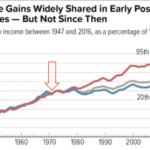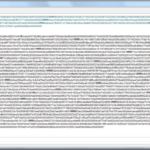While current operations will not be ceased, New York continues to show an adversarial stance to bitcoin mining as a whole.
This is an opinion editorial by Rick Mulvey, author of The Fraud Within and contributor to Bitcoin Magazine.
New York State’s Department of Environmental Conservation dealt another blow to the upstate Greenidge Generating Facility, which produces electricity for the power grid and also mines bitcoin.
Greenidge stated that the decision, announced on Thursday, to deny them a new “Title V” Air Emissions permit will “not have any impact on our current operations.”
The firm, located in New York’s Finger Lakes region, said it will continue to operate its natural gas-fired plant as it appeals DEC’s decision. In a statement, the company said “We can continue running uninterrupted under our existing Title V air permit, which is still in effect, for as long as it takes to successfully challenge this arbitrary and capricious decision.” The company stated its intention to pursue legal actions if their appeal is not successful.
Climate Activists Urge Governor Hochul To Take The Next Step
Referring to the recent legislative bill to put a two-year moratorium on cryptocurrency mining, Yvonne Taylor of the Seneca Lake Guardian organization said, “Governor (Kathy) Hochul must finish the job by signing the crypto moratorium.”
The moratorium bill passed both the Senate and the Assembly, and now awaits Hochul’s signature. Hochul recently said, however, that she doesn’t anticipate looking at the bill until late this year.
Activists continue to push for the moratorium, as they contend that other mining operations are looking to set up shop in New York state. Other gas-fired power plants are being eyed by cryptocurrency mining operations, according to Sen. Kevin Parker (D), one of the cosponsors of the moratorium bill.
Assembly Cryptocurrency Supporters Launch Compromise Bill
In a recent development, the New York State Assembly has passed a bill to direct the New York State Department of Financial Services to establish a task force to study cryptocurrency mining, without imposing a moratorium. Introduced by Clyde Vanel (D), measure A09275 would propose studying various aspects of cryptocurrency, including consumer and investor protections. The bill passed the Assembly by a vote of 122-25 on March 28.
The New York State Senate also passed the bill, on June 2, overwhelmingly, by a vote of 61-2.
That bill now also goes to Governor Hochul for signature.
Cryptocurrency Proponents Continue To Tout Benefits Of Mining
Construction and trade unions, especially the electrical workers union, have been big proponents of the cryptocurrency mining industry. Establishing mining operations using previously-shuttered power plants could create thousands of good paying jobs in upstate New York, they claim. The area is part of the vast Northeast “Rust Belt,” which has been bleeding manufacturing jobs for decades.
And of course, when making their case to state government officials, proponents are quick to point out that these operations may very well generate significant tax revenue for the state.
New York State in many ways has long been considered the financial capital of the United States, and cryptocurrency advocates want to ensure that the state does all it can to foster a climate that is business-friendly and a home to innovative technologies.
This is a guest post by Rick Mulvey. Opinions expressed are entirely their own and do not necessarily reflect those of BTC Inc. or Bitcoin Magazine.





 BTC-USD
BTC-USD  ETH-USD
ETH-USD  LTC-USD
LTC-USD  XRP-USD
XRP-USD